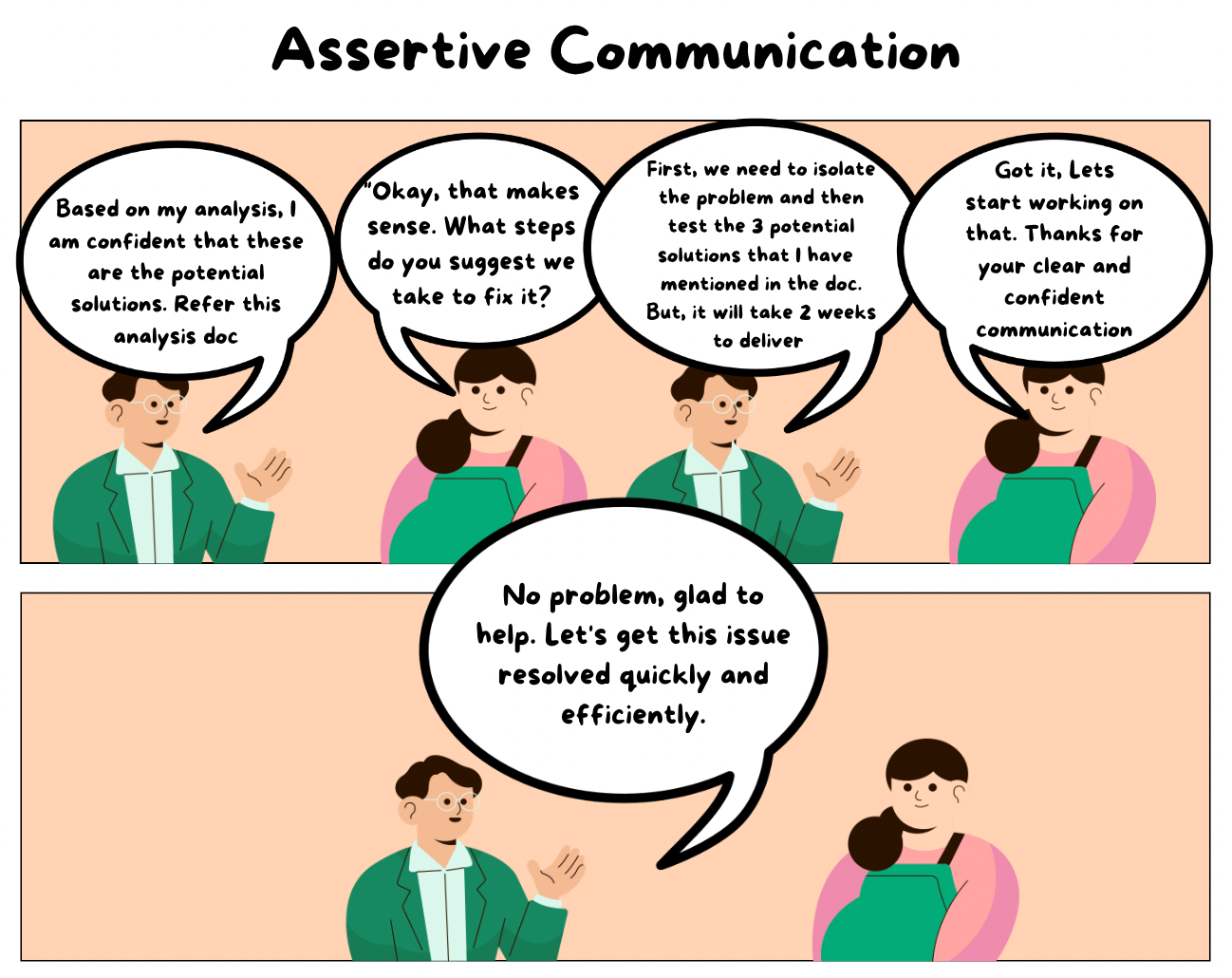As we navigate through life, one thing becomes evident: confidently expressing ourselves is essential. Whether it’s in our personal relationships, at work, or even within our own minds, the way we communicate greatly impacts how others perceive us and how we perceive ourselves. Finding the balance between being assertive and being aggressive can be a challenging task, but it is a skill worth mastering.
Growing up, I often found myself struggling with assertiveness. My introverted nature made it difficult for me to express my thoughts and needs clearly. Instead, I would often resort to appeasing others, even if it meant disregarding my own desires. This lack of assertiveness resulted in feelings of frustration, resentment, and a lack of self-confidence.
It wasn’t until I started exploring the concept of assertiveness that I realized its importance and the positive impact it could have on my life. I discovered that assertiveness is all about expressing ourselves in a direct, respectful, and honest manner. It’s about advocating for our needs while also considering the needs of others. Being assertive allows us to build healthier relationships, make better decisions, and increase our self-esteem.
So, how can we develop the confidence to communicate assertively? Here are a few strategies that have proven helpful on my own journey:
1. Understand Your Rights: Recognize that you have the right to express your thoughts, opinions, and feelings. Remind yourself that your needs are valid, and you are entitled to stand up for yourself. Knowing and believing in these rights lays the foundation for assertive communication.
2. Practice Self-Awareness: Being self-aware allows us to understand our thoughts, emotions, and reactions. By tuning into our inner voice, we can identify our wants and needs more clearly. This awareness enables us to express ourselves honestly and without fear of judgment.
3. Set Boundaries: Clearly define your personal boundaries and communicate them to others. Letting people know your limits helps establish respect and prevents others from crossing those boundaries. Remember, setting boundaries is not selfish; it’s an act of self-care and self-respect.
4. Use “I” Statements: When expressing yourself, focus on using “I” statements rather than accusatory or blaming language. By stating how you feel, think, or perceive a situation, you take responsibility for your emotions. This approach fosters open communication and encourages others to listen and understand your perspective without becoming defensive.
5. Practice Active Listening: Active listening is an essential component of effective communication. To be assertive, we must not only express ourselves but also listen and understand others. Listening attentively shows respect and helps build stronger connections with those around us.
6. Embrace Constructive Criticism: Being assertive means being open to feedback and constructive criticism. Instead of taking it personally, view it as an opportunity for growth and self-improvement. By handling criticism with grace and humility, we show others that their opinions are valued and respected.
7. Role-Play and Visualization: Sometimes, the fear of assertiveness can hold us back. Practicing assertive communication through role-playing or visualizing difficult conversations can help alleviate anxiety. By envisioning positive outcomes and prepared responses, we can boost our confidence when facing real-life situations.
8. Learn to Say No: Saying no is a powerful act of self-assertion. Many of us struggle with fear of rejection or the desire to please others, leading us to say yes when we should say no. Realize that you have the right to decline requests if it is not aligned with your wants, needs, or values. Saying no allows you to prioritize your own well-being and sets healthy boundaries.
9. Seek Support: Developing assertiveness skills may require support and guidance. Consider seeking resources such as books, workshops, or even therapy to enhance your assertiveness skills and work through any underlying issues that may be hindering your confidence.
10. Embrace Failure as a Learning Opportunity: Assertiveness is a skill that takes practice and courage. Do not be discouraged if you stumble or face setbacks along the way. Remember that every failure is an opportunity for growth. Acknowledge your efforts, learn from your experiences, and keep moving forward.
Developing assertiveness skills is a lifelong journey. It requires self-reflection, practice, and patience. But as I’ve discovered, the rewards are immeasurable. By embracing assertive communication, we empower ourselves to live more authentically, improve our relationships, and achieve the personal and professional success we deserve. It’s time to confidently express ourselves, knowing that our voices matter.
